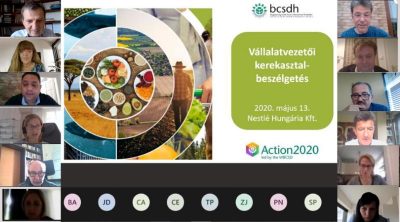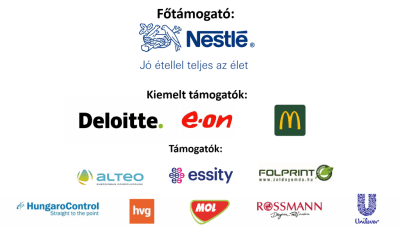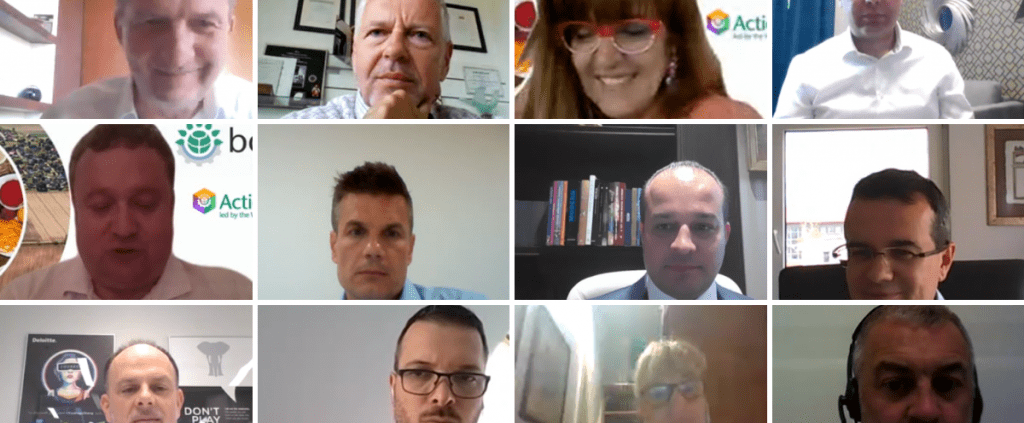Implementing sustainable supply chains has never been more important – the focus of Action2020 CEO roundtables was Food and Nature
Creating sustainable food systems is the key to maintaining the health of people and planet. The current system of industrial food and agricultural production is unsustainable, so changes both in mentality and in methods are necessary. The pandemic has highlighted the importance and vulnerability of these systems, and many steps must be taken to make them truly resilient and resistant, thus sustainable.
BCSDH held three exclusive roundtable discussions in May and June – virtual, due to the pandemic – with the participation of nearly 40 CEOs. The purpose of the discussions was to identify food- and nature-related focal areas about which BCSDH can formulate specific recommendations and activities for the business sector. The virtual hosts of the online roundtable discussions were three member companies of BCSDH, Nestlé Hungária Kft., SIÓ-Eckes Kft., and TESCO-Globál Áruházak Zrt.
Participants agreed that both an increase in the transparency and resilience of food supply systems and innovative corporate solutions will support the transition to a more sustainable food system. Significant steps towards this include the development of shorter and more diversified supply chains, the minimization of food waste throughout the whole value chain, and the implementation of methods and investments that serve to rehabilitate and preserve nature’s diversity.

“COVID-19 has also put food chains in a difficult position, drawing attention to the vulnerability of open systems, the problems of global processes, and the need for increasing the protection of biodiversity. If we can learn from our mistakes after the pandemic, building an energy- and material-saving and climate-friendly economy can contribute to building a more resilient economy. There is significant potential in having more flexible, shorter supply chains, and preventing food waste, moreover, also in the development of farming, that goes way beyond legal compliance and takes into account the protection of natural values” – said Attila Chikán Jr., President of BCSDH and CEO of Alteo Group, in his introductory speech.

The aim of BCSDH is to define recommendations and activities for the business sector regarding food and nature with which companies can create real impacts. Moreover, companies can introduce their business solutions on 8th October at BCSDH’s business lunch, and in the related publication, so that the latter can be adapted by others. The main sponsor of the Action 2020 program in 2020 is Nestlé, highlighted sponsors are Deloitte, E.ON and McDonald’s, and further sponsors are Alteo, Essity, Folprint, HungaroControl, HVG, MOL, Rossmann, and Unilever.





Leave a Reply
Want to join the discussion?Feel free to contribute!